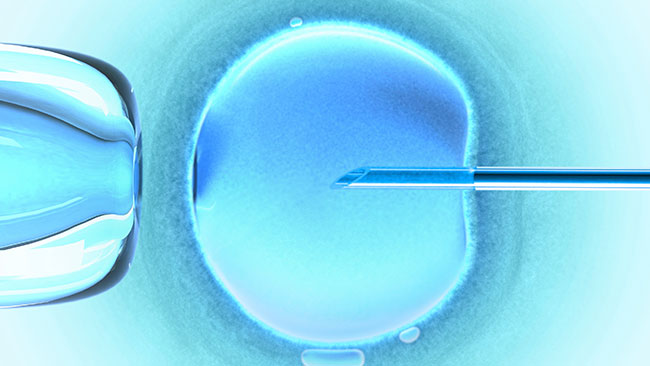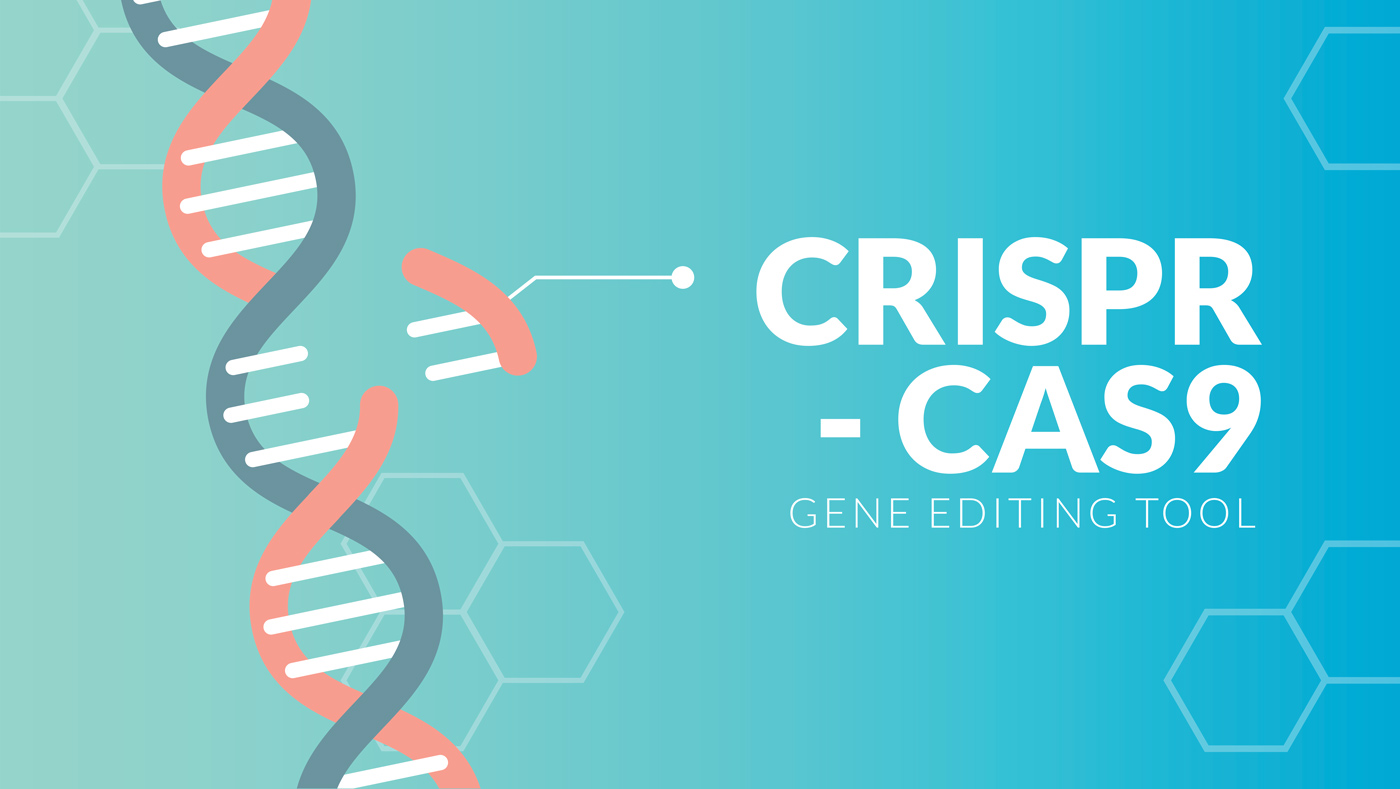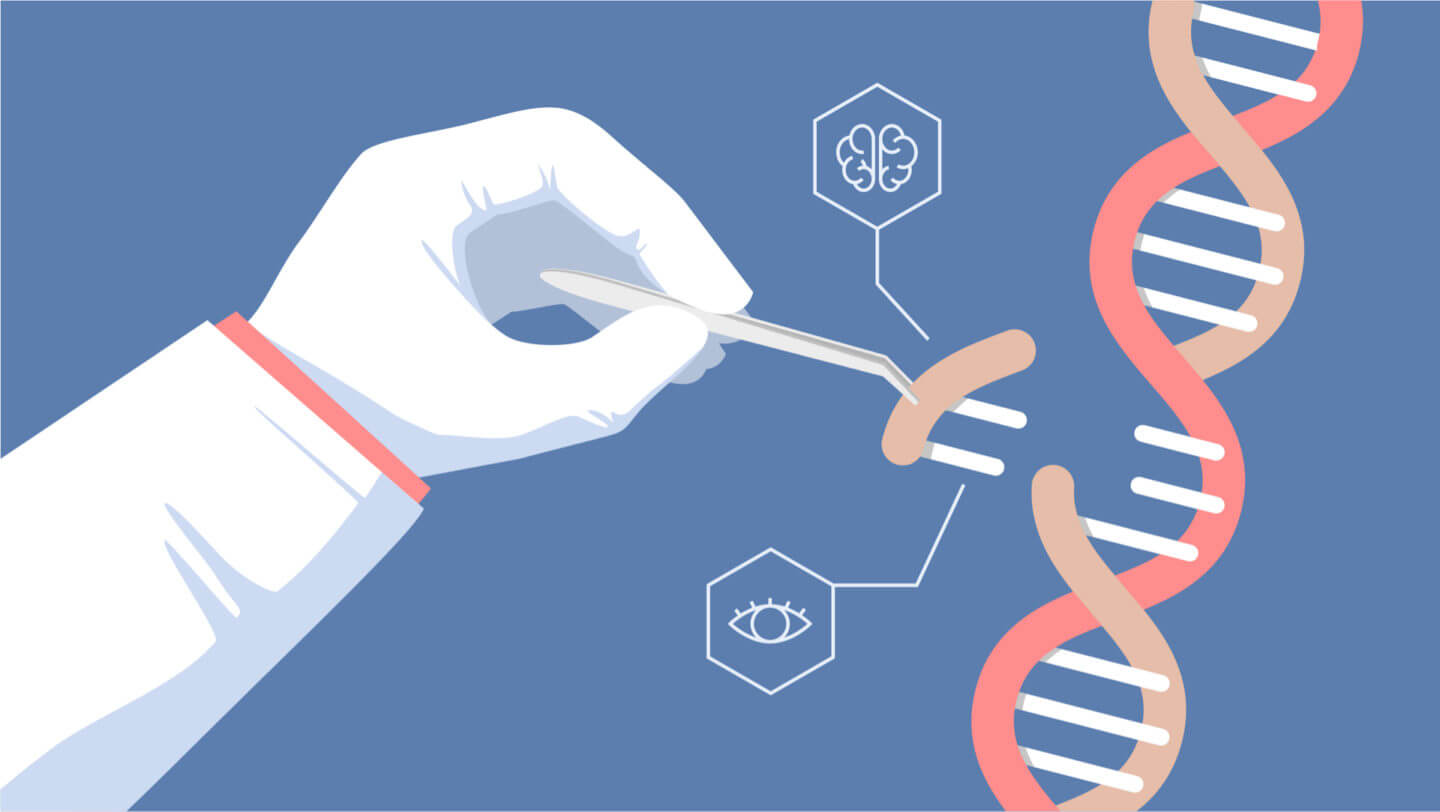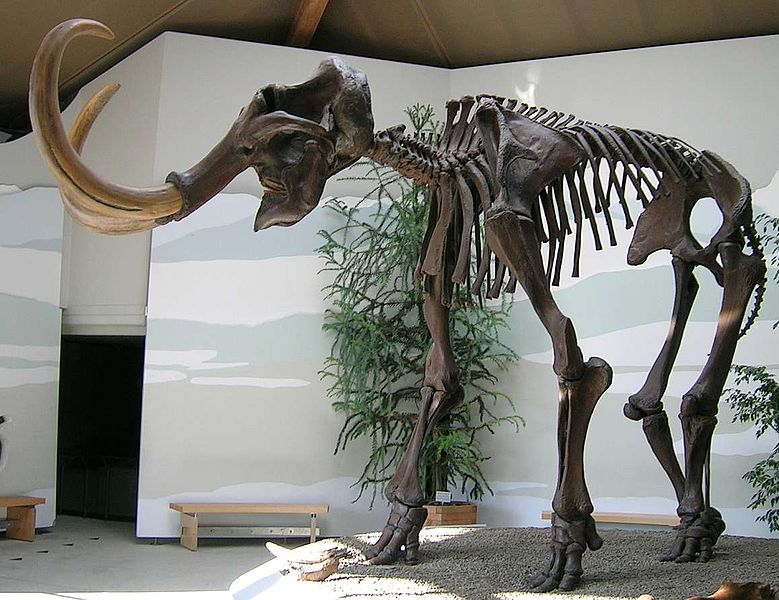https://cdn.steemitimages.com/DQmazFBuvtQCWojRbNMyUqigA6WeBy3z12zjzj4QF2nn5Yd/Female-IVF-Treatment.jpg

What you're looking atis the fertilization of a human egg with a sperm cell. There's nothing new about that. It happens all the time in fertility clinics. But there's something different happening. That needle is also delivering a tiny tool that will change the embryo's DNA. A new technology called. Revolutionary technology that can… CRISPR

...edit DNA with incredible precision. In fact, it's just in the last 65 years, a single lifetime, that we've figured out how DNA works, built machines that could read it, and then tools that could rewrite it. Now a question we've been asking for decades is becoming very real. If humans had the technology to control the source code of life, what happens when we turn it on ourselves? ...in order to tinker with our blueprints, genetic makeup. Once you start tinkering, where do you stop? And that's where things get complicated....crucial to finding cures for diseases like cancer. s this the way we want to nurture the next generation of children? This makes man his own god.

Today we celebrate the revelation of the first draft of the human book of life As a society, we've spent about $3 billion dollars to sequence the first human genome, The genome is our entire genetic blueprint, three billion pairs of As, Ts, Cs, and Gs, that each of us carry in almost every cell. Mapping it was the biggest undertaking in the history of biology. In the 15 years since then, the price of sequencing a genome has fallen dramatically. That's many, many zeros off the price tag. Take a closer look at that chart. That's not a typical scale. The numbers are decreasing by a factor of ten. With all that data, researchers can identify genes that cause diseases. But to actually change those genes, you'd have to track them down within the genome. Humans didn't have an easy way to do that, but it turns out… bacteria did. See, they've been battling viruses for billions of years, and some of them developed an immune system that records segments of viral DNA within their own genome. So when that virus attacks again, its DNA is easy to recognize and to cut, with enzymes that act like scissors. That prevents the virus from replicating. That immune system is called CRISPR. Its discovery was cool enough, but in 2012, Jennifer Doudna and her collaborators showed that they could reprogram the CRISPR system to track down and edit a gene of their choice, taking CRISPR from an interesting fact to a powerful tool. For harnessing an ancient bacterial immune system as a powerful gene editing technology, The technology is so affordable that you can now tweak the DNA of bacteria at home with a DIY CRISPR kit. What will happen 20, 30, 40 years from now? Piglets that might one day provide livers, hearts, and other organs for humans. Now they're making mosquitoes that are resistant to malaria. The woolly mammoth could be making a comeback. That last one might remind you of a certain sci-fi classic.

Don't you see the danger in what you're doing here? Genetic power's the most awesome force the planet's ever seen, but you wield it like a kid that's found his dad's gun. All of these experiments raise difficult ethical questions, perhaps none more than the use of CRISPR in human embryos. Nobody has tried to start a pregnancy with those embryos, but if they ever do, we will be crossing a line that people have debated for decades. This debate has long had some important distinctions. First of all is the distinction between somatic gene editing and germline gene editing.Somatic cells are most of the cells in the body: blood, brain, skin cells, where the DNA doesn't get passed down to offspring. Germline edits involve sperm, eggs, or embryos, basically changing the DNA of future generations. It's a profound difference, because in germline editing, we're talking about making changes that ultimately affect the human population and human evolution. Another major divide that emerged early on in the debate was between therapy and enhancement. Therapies treat diseases, and enhancements give advantages to people who are already healthy. Somatic gene editing has always been much less controversial, primarily because any change you would make would end with that person. Generally that's considered to be medicine. Somatic gene enhancement is like plastic surgery. Any change you make ends with them. There are no genetic plastic surgeons yet. Researchers are focused on diseases, and as those trials begin, the big debate will be here, whether we should move beyond treating the sick to editing diseases out of future generations. That hasn't happened. As far as anyone can tell, nobody is trying to make CRISPR babies yet. That's a temptation that I think has to be grappled with. I think the technology is not quite there yet, but I think it's close. Creating a genetically modified baby is already illegal in at least 25 countries. In much of Europe, it's been banned for decades. If you look at a pattern across countries, one of the primary variables that would explain differences is proximity to the Nazi experience. The line between therapy and enhancement has, over time, gotten a lot more fuzzy. For one thing, not everyone agrees on which genetic conditions need fixing. Is deafness a disease? Many in the deaf community would say it is not. Is dwarfism a disease? Many would say not. But the line is fuzzy even for diseases we agree on. Depending on which variant you have, the APOE gene increases, decreases, or doesn't affect the risk of Alzheimer's disease later in life. Say you switched your child's DNA from a high-risk to a low-risk variant. Would that be a therapy or an enhancement? There are rare genes linked to lower risk of heart disease, diabetes, immunity to HIV, stronger bones, bigger muscles, less body odor, the ability to get by with less sleep. Where would you draw the line? And that raises one of the most profound ethical threats in genetics, or as you may know it, "designer babies." ( Later, I'll write more about designer babies ) If governments give a green light to germline editing, it would start with preventing the transmission of diseases caused by a single gene. But the thing is, most of the people who carry those genes already have a way to do that without editing any DNA, which is why the shorter path to designer babies isn't gene editing, it's gene selection. And for complex traits, like intelligence, height, or diabetes, we may not be able to edit them directly, but we might be able to predict them… to an extent. I don't think we're ever going to be able to say honestly this embryo is going to get 1450 on the two-part SAT. But I do think we'll be able to say a 60% chance of being in the top half, 13% chance of being in the top 10%. These predictions are called polygenic scores Add gene editing to that process and you can see how the fertility industry could steer the future of human evolution. But we don't need to speculate about the distant future to see how the genomic revolution could change us.

In 1994, Dr. John Wasmuth found a gene for achondroplasia. A lot of dwarf parents were scared, because we thought it was the… and, you know, in many ways it really still could be, the first step towards eradicatingour kind of dwarfism. Genetic technologies can narrow the range of human variation. In Iceland, Down syndrome is on the verge of being eradicated and it's due in large part to the widespread use of genetic testing. And since unequal access to healthcare is a fact of our world, we risk giving the wealthy an extra genetic advantage. This will not be made available to everyone on the planet. It would only be the wealthy people who would have access to this. Already, rich kids are 10-15% healthier than poor kids. It's not enormous, but I wouldn't want to add another 10-15% on top of it.

My biggest fear, honestly, is that we'll see the use of gene editing getting ahead of itself. What I mean by that is an application that causes harm, that creates a backlash against a technology that I think has really the potential to be incredibly positive and have a positive effect on society. Unless we're in nuclear war, unless the world ends, we're going to be using genetics more and more in human reproduction, and that will have consequences, but I do the work I do in the hopes that if we think about these things, we worry about them, we talk about them enough in advance.

Originally posted here: https://steemit.com/science/@biologists/crispr-genetic-regulation












No comments:
Post a Comment